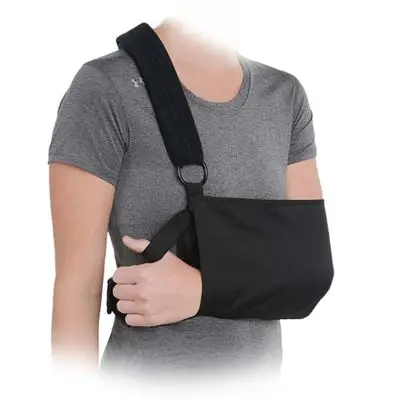Orthopedic Braces Prescription
In most cases, whether you need a prescription for a brace depends on the type of brace and the situation. Here’s a breakdown:
Medical Necessity and Insurance: If a brace is medically necessary and you want insurance or Medicare to cover the cost, you typically need a prescription. For instance, braces used for post-surgical support, chronic conditions, or injury recovery often require a doctor’s order for insurance reimbursement.
Over-the-Counter Braces: Many braces, like basic knee braces or wrist supports, can be purchased without a prescription at pharmacies or online. These are typically for mild injuries or preventive support.
Custom or Specialized Braces: For more complex conditions (e.g., scoliosis braces, custom-fitted knee braces, or spinal braces), a prescription is usually required. These braces are often fitted to the patient and are more specialized.
Legal Requirements: Some braces, especially those that claim to have a therapeutic or corrective effect, may be regulated as medical devices and require a prescription based on local regulations (e.g., U.S. FDA regulations).
If you’re unsure, it’s best to consult a healthcare provider, as they can determine the necessity and help you with the right type of brace.
Wrist Brace With Thumb Spica - Universal
A Wrist Brace with Thumb Spica is an orthopedic device designed to immobilize and support both the wrist and thumb, typically used for conditions that affect these areas. This type of brace is frequently recommended for conditions like thumb sprains, tendonitis, carpal tunnel syndrome, De Quervain’s tenosynovitis, and after certain thumb or wrist surgeries. The brace's main purpose is to limit movement in the thumb and wrist, allowing injured or inflamed tissues to heal while reducing pain and discomfort.
SUGGESTED HCPC: L3807 and L3809
ORDER NUMBER: 170-R, 180-L
SIZE: Universal, Left & Right
PRODUCT HIGHLIGHTS:
• Constructed of durable, lightweight material
• Universal sizing
• Adjustable dorsal stay
• Removable and malleable aluminum, palmer stay for correct fitting
INDICATIONS:
Wrist immobilization, De Quervain's Syndrome, wrist and thumb sprains and strains.
SUGGESTED HCPC: L3807 and L3809
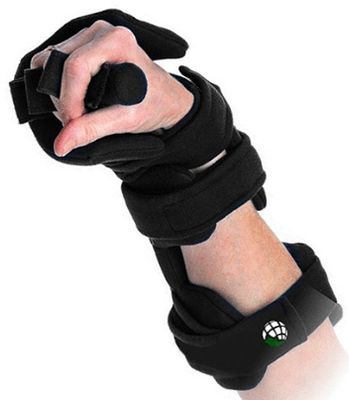
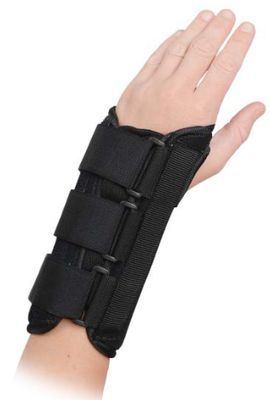
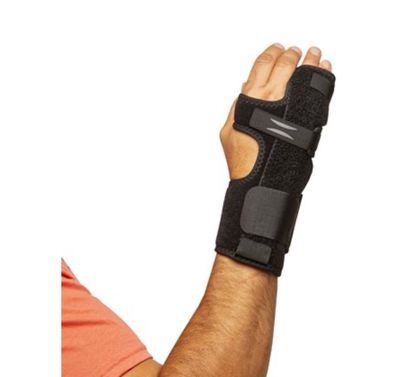
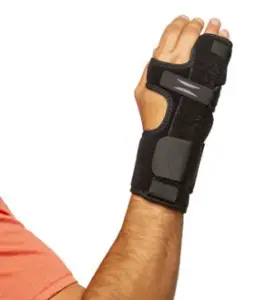
Knuckle Orthosis: Purpose, Benefits, and Applications
Knuckle Orthosis Knuckle Orthosis: Purpose, Benefits, and Applications A Knuckle Orthosis is a specialized medical device designed to provide stability, support, and protection to the metacarpophalangeal (MCP) joints—the knuckles of the hand. These orthotic devices are commonly used in the… Continue Reading…

Wrist and Hand Braces: Support, Relief, and Rehabilitation for Hand and Wrist Conditions
Wrist and Hand Braces Introduction Wrist and hand braces are essential tools for individuals managing pain, recovering from injuries, or dealing with chronic conditions such as carpal tunnel syndrome, arthritis, or tendonitis. These braces provide stability, compression, and support to… Continue Reading…

Orthopedic Shoulder Braces: Support for Shoulder Injuries and Chronic Conditions
Orthopedic Shoulder Braces Introduction Orthopedic shoulder braces are designed to provide support and stabilization for individuals recovering from shoulder injuries, managing chronic shoulder pain, or undergoing post-surgical rehabilitation. These braces help alleviate discomfort, protect the shoulder joint, and prevent further… Continue Reading…

